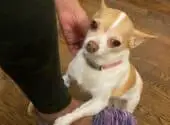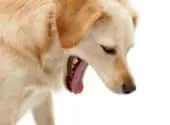Hiccups can be super cute to watch at first, but sometimes your pup’s hiccups may be constant. If you’re trying to sleep or do something that requires silence, it can get annoying pretty quickly.
Your puppy probably doesn’t like it very much either! If your puppy is getting hiccups all the time, it may also be concerning for you as a pet owner. Do you need to worry, and is there something that you need to do?
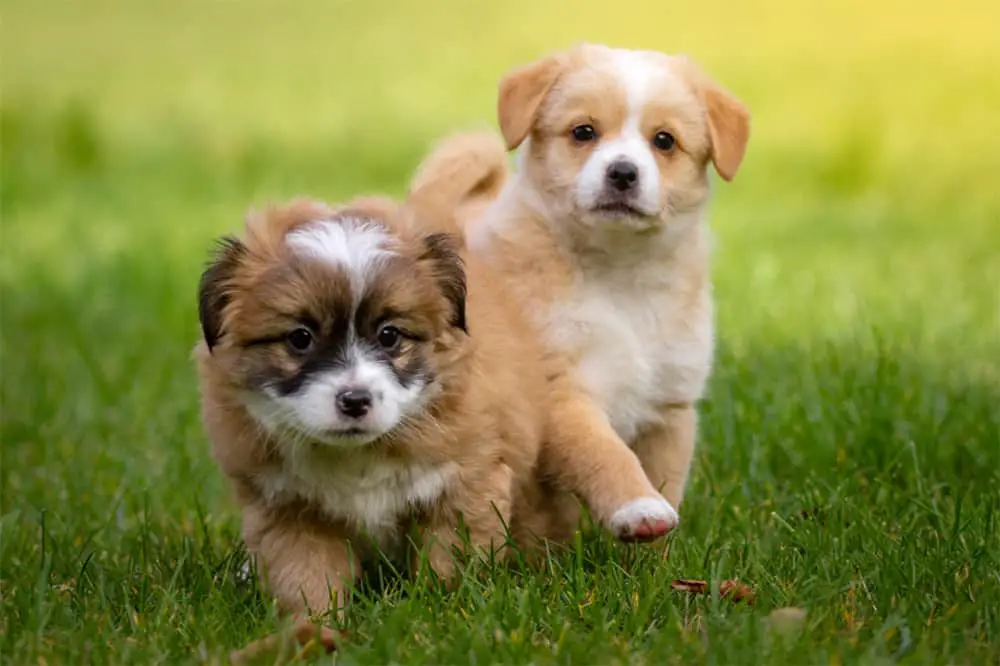
We’re here with all of the answers that you need to work that out. Read on for our guide on why puppies get hiccups all the time, and what you can do about it.
Reasons For Puppies Getting Hiccups
So why do puppies get hiccups? There are actually a number of reasons. The main thing to note is that hiccups in puppies aren’t severe very often, so you most likely won’t need to worry too much.
The hiccups begin because the diaphragm moves abruptly or contracts, generally caused because your dog is excited, or they’ve eaten their food a little too quickly.
It can also happen because your dog is feeling stressed or there’s something that’s irritated their body. Hiccups most frequently occur early in the morning in puppies.
In reality, puppy hiccups are incredibly common, to the point that many professionals say that they are simply a sign that your puppy is growing. It’s just something that they have to deal with as they start to grow bigger.
Some evidence suggests that it can occur in the womb as a way for the fetus to test their breathing, and it’s a habit that just carries on after they’re born. There’s no definitive answer as to why puppies in the womb hiccup, however.
There are situations where hiccups can be a sign of something serious, such as if it’s accompanied by symptoms such as vomiting, coughing or shortness of breath. For the most part though, it’s nothing to worry about.
The Duration Of The Hiccups
So you may now be wondering how long your puppy is going to keep hiccuping. That’s a great question! In most cases, the hiccuping should subside within around half an hour.
If they do happen to last longer than this on a regular basis then it’s a good idea to check in with your vet, especially if they are coughing a little along with the hiccups.
So how do you know if your dog is hiccuping? Well, they sound a lot like human hiccups do in many respects. You will also notice sudden movements from your dogs like a spasm and sometimes they will burp afterwards. It’s best to look out for the spasm though sincerely you may not hear a thing.
Minimizing The Hiccups
In most cases hiccups for dogs are much like they are for people – they are an inconvenience that happen for a short duration of time and will go away on their own. If you let them ride it out for a few minutes then the hiccups should go away without any intervention.
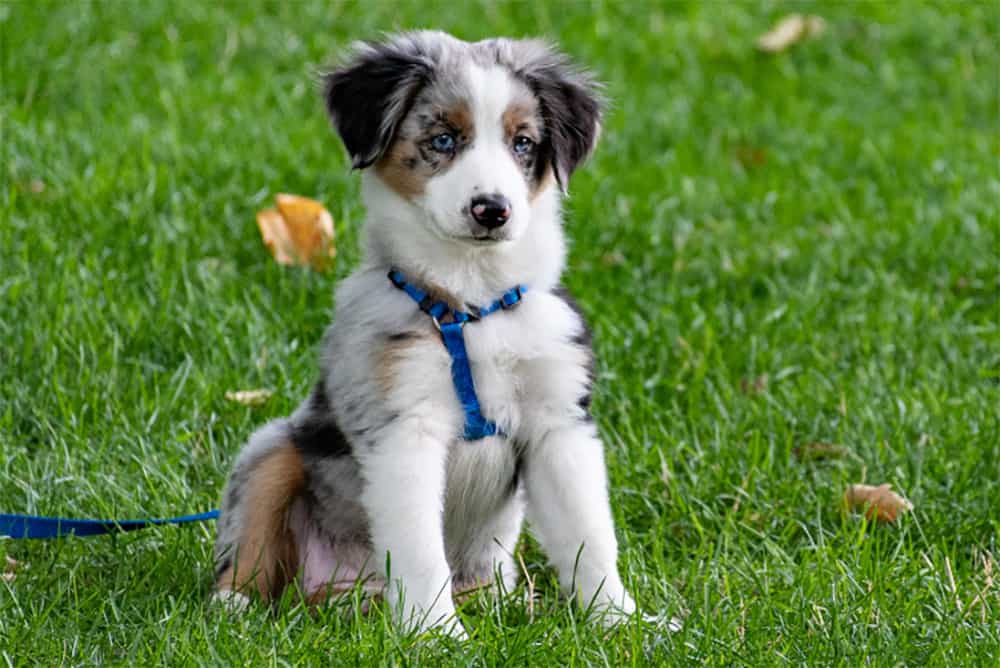
They generally don’t bother dogs as much as they bother people too. You aren’t likely to see a dog asking someone to get spooked or to do a headstand to get rid of hiccups, after all!
They just let the hiccups run their course and get on with it – it usually doesn’t hurt them. If you are concerned though, there are some things that you can do in order to make them a bit more comfortable.
Don’t Encourage Holding Breath
Whenever we have hiccups, many of us want to do whatever we can to get rid of the annoying hiccups, to the point of holding our breath and all sorts of other wacky shenanigans.
This doesn’t even work for people, so it certainly doesn’t work for dogs. Don’t make them hold their breath or poke out their tongue or anything like that because it will be pointless. It’s just going to hurt them and achieve nothing.
Eat Slowly
One of the things that can cause hiccups is when your dog is eating and drinking very quickly. Unfortunately, dogs can get very excited around meal time, and this can result in them eating their food rather quickly.
The hiccups are inevitable after this. It can be difficult to get your dog to eat more slowly, but there are things that you can do to make them calm down.
First, don’t over stimulate them – too much excitement is a recipe for disaster at meal times. There are also food bowls that release the food slowly that can help them to eat more slowly, and this may be useful too.
Play Time!
If you want to get rid of your puppy’s hiccups, then spending some time playing with them may actually be quite beneficial. This is because it can help to get their breathing patterns back in order. Don’t do anything too rigorous, just encourage them to get moving.
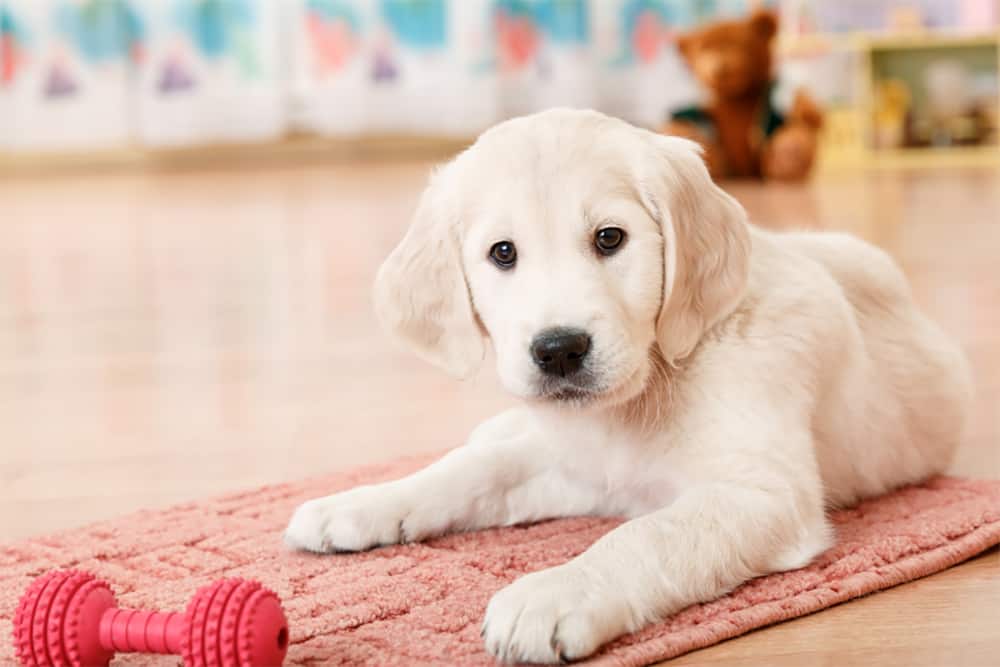
Give Them Belly Rubs
Puppies always love a belly rub, but when they have hiccups it can actually be very useful. Make your pup lay down and then make them relax their tummy muscles to calm the hiccups. It will bring their breathing back to a normal speed too which is important for getting rid of the hiccups.
Hydration
When puppies have hiccups, it’s important that they are well hydrated. This is actually one of those things that works for people too! It will soothe the body and then help to ward off the hiccups.
Speaking To Your Vet
If your dog has hiccups that are lasting a long time, like longer than 30 minutes, then it’s a good idea to speak to your vet. This is especially important if the hiccups are happening regularly and are lasting for hours on end.
Also speak to your vet if you are noticing hiccups in conjunction with other symptoms. This may include coughing, tiredness, fever or a lack of willingness to eat.
Look out for additional gastrointestinal issues too like constipation and diarrhea. If you notice any of these symptoms then it’s imperative that you speak to a veterinarian as soon as possible.
You should get emergency help if your dog is struggling to breathe or is wheezing. Ultimately you need to use your common sense – if your dog is in trouble, you’ll most certainly know about it.
Frequently Asked Questions
How Often Do Puppies Have Hiccups?
This can often depend. When dogs are still puppies, hiccups can occur rather frequently thanks to excitement and eating food too quickly.
Usually though, they tend to decrease with age to the point where your dog will likely hardly get hiccups at all by the time that they are an adult.
The frequent hiccups usually tend to stop after your dog reaches roughly 4 months of age, though it can sometimes keep happening up until they’re 6 months old.
Should I Worry If My Puppy Is Hiccuping All The Time?
In most cases, you have nothing to worry about if your puppy is hiccuping a lot.
The only exception to this is if you are noticing other concerning symptoms, if the hiccups persist for long periods of time or if they continue to be regular into adulthood. It can sometimes be a sign of something bad, but it’s mostly normal.
Can You Prevent Hiccups In Dogs?
Unfortunately, it’s not possible to avoid all causes of hiccups. In most cases though hiccups will happen because your dog is eating too much too fast, so helping them to eat more slowly can often help.
Giving them smaller meals more often is one choice you can take. It’s also a good idea to help them to calm down by relaxing after they have eaten, and not make them exercise for around an hour after you’ve fed them.
This will help to ensure that the food gets right to the gastrointestinal tract and that your dog’s digestion is working just fine. This will mean that there’s less strain on the diaphragm in turn.
Summary
So are hiccups a problem? In most cases no – they’re completely harmless and just a normal part of your puppy growing up. There are things that you can do to minimize the hiccups, but for the most part it’s usually best to allow them to run their course.
They’ll usually go away on their own, and you will notice them hiccuping less frequently as they get older.

